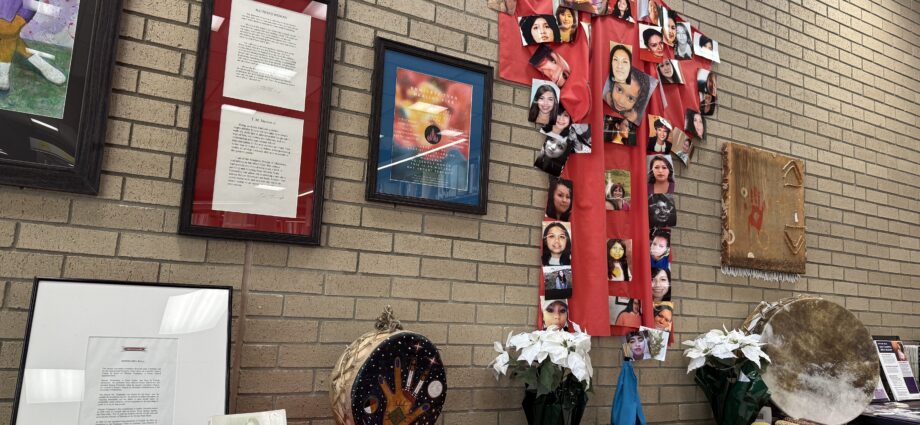In 1987, October was recognized as Domestic Violence Awareness Month and officially acknowledged by the U.S. Congress in 1989. Ever since then, this month has brought more awareness to the problem people face across the country and helped bring more attention to Native communities. With Indigenous women being the highest group in the U.S. to experience domestic abuse, a report by the National Institute of Justice states that more than 80% of Native women have experienced violence in their lifetime, and 55% have experienced physical violence from a partner.
Native Americans have dealt with trauma and abuse for generations due to colonization, boarding school experiences, and family dynamics. Over time, many became used to the violence and never learned how to process or heal from what they experienced—but these patterns can be broken and learned from.
Native Americans have dealt with trauma and abuse for generations due to colonization, boarding school experiences, and family dynamics. Over time, many became used to the violence and never learned how to process or heal from what they experienced—but these patterns can be broken and learned from.
Relationships can reach another level of abuse when people don’t notice the signs of unhealthy actions their partner or themselves are displaying. It’s important to understand what these signs are and recognize how they begin before it escalates. Noticing these signs can help not only yourself but can also allow you to speak up for someone else who might be in a difficult situation.
Here are 10 Unhealthy Relationship Signs:
- Intensity → One partner’s feelings or actions feel too strong or move too fast. They might text constantly, demand attention, or get upset if you need space.
- Possessiveness → Control over who you spend time with or what you do. They might get jealous easily and make you feel guilty for hanging out with others.
- Manipulation → May twist situations to make you doubt your own thoughts and feelings.
- Isolation → They slowly cut you off from friends, family, or other support systems, making it harder to talk to others or get help.
- Sabotage → They try to hurt your confidence by spreading rumors, mocking your goals, or holding you back from things that make you happy.
- Belittling → They put you down by insulting you, making fun of your opinions, appearance, or achievements to make you feel small.
- Guilting → They blame you for how they feel or for their mistakes. You might feel pressured to fix their problems or constantly apologize to keep peace.
- Volatility → Their mood changes quickly and often leads to yelling, threats, or unpredictable anger, making you feel like you’re walking on eggshells.
- Deflecting responsibility → They refuse to take blame for hurtful behavior and instead make excuses, blame you, or act like it’s not a big deal.
- Betrayal → They lie, cheat, or break promises, damaging trust and making the relationship feel unsafe or one-sided.
If you feel you or someone who might be dealing with a difficult situation, speak up and don’t ignore it, you are not alone and there are resources that can help.
Resources down below:
https://www.thehotline.org/ — National Domestic Violence Hotline (24/7 chat or call 1-800-799-7233)
https://nnedv.org/ — National Network to End Domestic Violence
https://nrcdv.org/ — National Resource Center on Domestic Violence
https://strongheartshelpline.org/ — 24/7 Native-specific domestic & sexual violence helpline (1-844-7NATIVE)
https://csvanw.org/ — Coalition to Stop Violence Against Native Womenhttps://www.joinonelove.org/ — Learn about relationships

